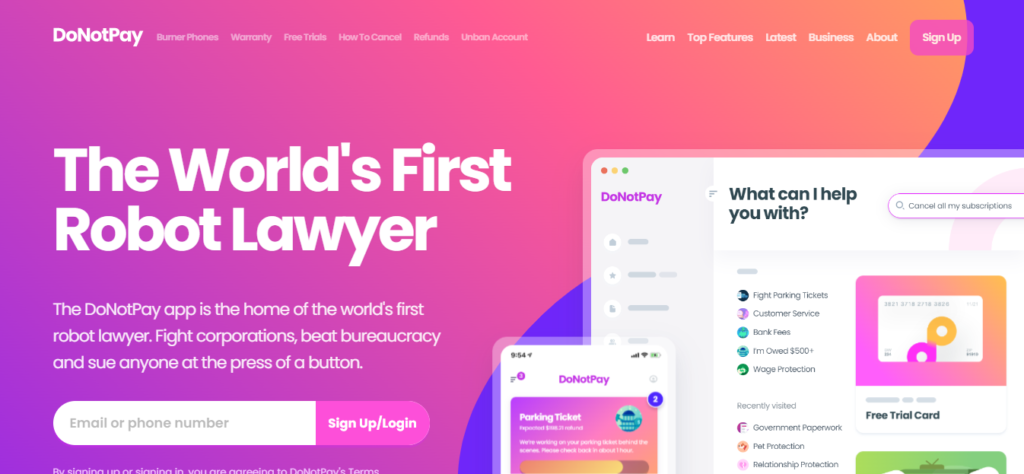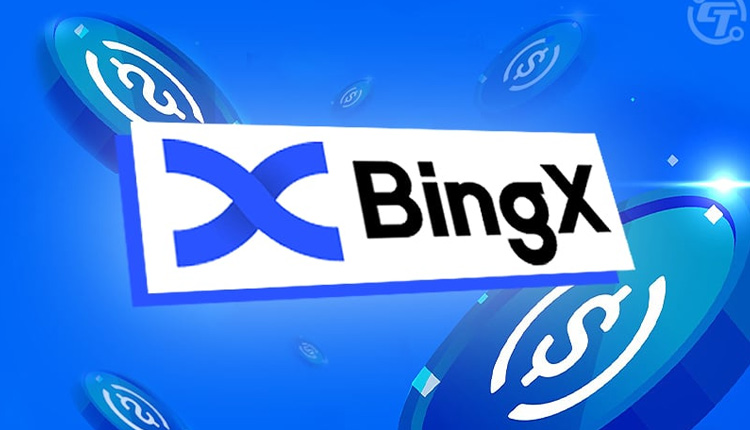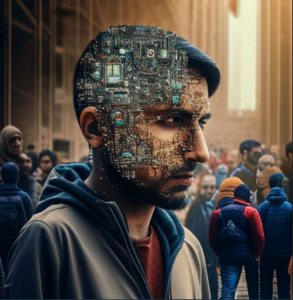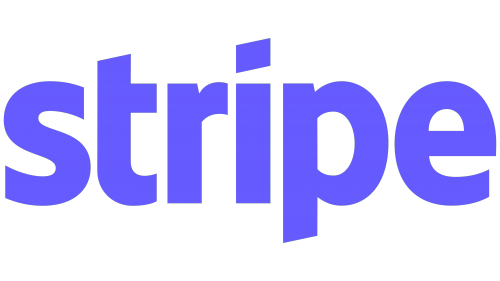DoNotPay AI is a fascinating and innovative technology that has been making waves in the legal industry in recent years. In this article, we will explore what DoNotPay AI is, its history, how it works, its features, benefits, limitations, and controversies.

Introduction
DoNotPay AI is an artificial intelligence-powered chatbot that provides legal assistance to individuals who cannot afford an attorney or do not want to pay for one. The chatbot was created by Joshua Browder, a British computer programmer and entrepreneur, in 2015. The initial version of the chatbot was designed to help people fight parking tickets, but it has since evolved to cover a wide range of legal issues.
History
Joshua Browder created DoNotPay AI while he was a student at Stanford University. He was frustrated with the legal system and how difficult it was for ordinary people to access legal help. He decided to create a chatbot that could provide free legal assistance to people who could not afford an attorney.
The initial version of DoNotPay AI was designed to help people fight parking tickets. Browder programmed the chatbot to ask users a series of questions to help them build a case against the parking ticket. The chatbot would then generate a letter that the user could send to the authorities to contest the ticket. The chatbot was an instant success, and it saved people millions of dollars in fines.
Encouraged by the success of the parking ticket chatbot, Browder decided to expand the capabilities of DoNotPay AI to cover other legal issues. Today, the chatbot can help users with a range of legal problems, including landlord-tenant disputes, small claims court cases, and even asylum applications.
How Does DoNotPay AI Work?
DoNotPay AI uses natural language processing (NLP) and machine learning (ML) algorithms to understand users’ legal issues and provide them with appropriate legal advice. Users interact with the chatbot through a simple and intuitive chat interface, which is accessible through the DoNotPay website or the DoNotPay app.
The chatbot is designed to help people with their legal issues in an efficient and cost-effective manner. Through a series of questions, the chatbot can assess the user’s situation and provide them with a list of practical steps they can take to address their legal matter. Where appropriate, it can also generate legal documents tailored to users’ needs. This approach allows users to access legal advice quickly, without needing to book an appointment with a lawyer or pay expensive fees.
DoNotPay AI utilizes cognitive technology to better understand the nuances of legal jargon and case law. By intelligently processing these documents, it is able to accurately interpret the user’s needs before providing advice tailored to their individual situation. In addition, the chatbot simplifies bureaucratic processes by automating form completion and streamlining various paperwork associated with court proceedings. This makes tackling complex legal issues much easier for anyone who might not have a law degree.

Features
DoNotPay AI is an AI-based platform offering comprehensive legal assistance to individuals without access to a lawyer. Primarily, its services are free of charge and customized to each user’s unique circumstances through natural language processing (NLP) and machine learning (ML).
In particular, its benefits include:
Free Accessibility
The platform grants users free access to the legal information they need, providing an invaluable service for those who cannot afford professional counsel.
Data Driven Recommendations
Utilizing NLP and ML, DoNotPay AI offers users up-to-date legal advice tailored to their specific situation. This saves users time spent researching intricate legal code – allowing for more informed decisions and better outcomes.
Legal Document Generation
DoNotPay AI can generate legal documents, such as demand letters and cease-and-desist letters, that users can use to resolve their legal issues. This feature saves users time and money by eliminating the need to hire an attorney to draft legal documents.
Court Filing Assistance
DoNotPay AI can also provide users with assistance in filing court documents, such as complaints and appeals. This feature is particularly helpful for individuals who are representing themselves in court and may not be familiar with the legal process.
Subscription Offerings
DoNotPay AI provides subscription options that give users additional functions and advantages. For a periodical charge, customers can use services such as a virtual credit card for free trials with no risk of being billed, and an attribute which automatically annuls unused subscriptions to conserve money for users.
Reachability
DoNotPay AI is accessible to anyone with access to the web or DoNotPay’s app/website. This characteristic renders it particularly worthwhile for people living in isolated or overlooked areas where legal resources are not easily obtainable.
Benefits
The benefits of DoNotPay AI are significant and far-reaching. Some of the key benefits of the chatbot include:
Access to Legal Services
DoNotPay AI provides free legal assistance to people who cannot afford an attorney or do not want to pay for one. This feature helps to bridge the justice gap and ensures that everyone has access to legal services, regardless of their financial situation.
Time and Cost Savings
DoNotPay AI saves users time and money by eliminating the need to hire an attorney or spend hours researching legal issues. The chatbot can generate legal documents and provide users with personalized legal advice in a matter of minutes, which can save users hundreds or even thousands of dollars in legal fees.
Equipping Users With Necessary Tools
DoNotPay AI enables users to access the legal system independently by providing them with important knowledge and resources. This chatbot presents users with an opportunity to take charge of their problem without having to involve another person and to get the best possible results from their fight.
Privacy
In addition, using this AI grants users a level of anonymity that often cannot be provided when dealing with a lawyer. Individuals can engage with the chatbot from the safety of their own residence and don’t have to risk disclosing personal information to any third parties.
Pricing plans
DoNotPay AI by providing two pricing plans, help individuals to select the plan that best suits their needs.
The free plan offered by DoNotPay AI is ideal for individuals who need assistance with simple legal issues such as parking tickets, DMV appeals, and small claims court cases. This plan is great for those who only require occasional legal help without requiring a large commitment in terms of either time or money. However, this plan may not be suitable for those seeking more comprehensive coverage or in need of ongoing legal advice and guidance.
For those seeking additional support with their legal matters, the subscription plan also offered by DoNotPay AI may be worth considering. This plan offers access to a wider range of services such as consumer protection and immigration issues which are often more complex in nature. Additionally, subscribing users can also take advantage of various premium features including a virtual credit card for signing up for free trials and an automatic subscription cancellation feature, allowing them to remain proactive when managing their specific circumstances.
Overall, both plans give users the flexibility to select the service that fits within their current financial means whilst ensuring they keep control over their particular situation thanks to added features included within the subscription package such as unlimited consultations via video call or chatbot conversations as well as an analysis of applicable laws within each jurisdiction.
When making your choice it is recommended to carefully consider your usage patterns before selecting which pricing option is most suitable.
Regardless of which pricing option you choose, DoNotPay AI allows users to remain confident they are receiving dependable quality while utilising cutting-edge technology tailored around meeting the specific requirements of each individual’s course of action without overspending on unnecessary features that won’t benefit their cause – meaning everyone can rest assured they are getting the best value for money depending on their own individual circumstance and requirements.
The Ethics of Using AI for Legal Assistance
As Artificial Intelligence (AI) continues to become increasingly more advanced and commonplace, its role in the legal sector has grown ever more prominent. In particular, the emergence of platforms like DoNotPay AI has enabled individuals to access legal assistance at reduced costs through sophisticated machine learning algorithms. With a greater reliance on AI in all areas of law, significant ethical concerns have been raised surrounding potential issues such as bias, privacy and unintended consequences or implications.
To combat these delicate issues – which can cause tremendous damage if not addressed properly – DoNotPay AI has implemented a comprehensive set of guidelines that assure equitable and unbiased support for users of its platform. To this end, the platform does not factor in extraneous details about a user’s race, gender or sexuality, as such information is irrelevant with regards to providing legal aid and could lead to an unfair advantage for certain groups. Furthermore, continual assessment is undertaken by the platform to detect possible signs of discrimination during user interactions or searches; any suspicions identified are swiftly mitigated and corrected by the DoNotPay AI team.
Moreover, another important issue at stake here is that of privacy – as matters related to legality tend to be strictly confidential – and thus DoNotPay AI guarantees absolute safety when it comes to handling sensitive data; encryption technology alongside other security models have been employed for protection purposes and customers can rest assured that their private information is secure from entities who may wish to misuse it for financial/marketing reasons.
Nevertheless, with the clever use of artificial intelligence also come risks that must be taken into account; namely those regarding unexpected results being produced by an algorithm which works based on given patterns or criteria supplied by respective inputs -> thusly there exists room for errors and inaccuracies in advice provided; thankfully however this doesn’t occur often due to carefully considered implementation measures taken by DoNotPay AI: customer feedback options have been included on their system so that users can provide input when they identify improper outcomes/recommendations presented by software search engines, plus lawyers are regularly hired as part of consultative teams who directly monitor live triage operations under witness in order to avoid any mistakes made by machines when assessing complex case particulars
With all things considered concerning ethical topics while using AI-driven legal procedures there still remains plenty of food for thought left over. For example: some voices from the field expressed serious doubt regarding whether these kinds of virtual processes would cause loss of jobs among qualified specialists within traditional law firms; likewise others were wary about potential oversimplifications surrounding important subject matter falling underneath lawyer purview which could potentially necessitate inadequate context or disregard certain intricacies completely -> leading ultimately towards failure from procedural perspectives down line.
In the face of these inquiries, a productive solution may be to investigate how artificial intelligence services can supplement existing human ones instead of attempting total replacement – this may be sensible when complex events occur where authorised evaluators are still requisite to make sure that all legalities are taken into consideration – though apps (driven by AI) might provide initial advice accurately so that only those circumstances that call for expert judgement remain valid and protected, thereby securing continous job opportunities across some sectors in spite of emerging technological improvements.
Obviously, the execution of ethical standards inside roboticised legal frameworks should not be overlooked as fairness – combined with respect for confidentiality and precautionive user-awareness schemes designed to reduce mistakes generated by machines administering scenarios outside human control at times – is an element not to be neglected. Whether when acquiring products/services online, constructing contracts, obliging policy regulations or setting up proper court proceedings, the methods highlighted above must be followed accordingly in order pledge loyalty on behalf of the engineering sector both today as well as future endeavours we are tasked with.
Limitations
While DoNotPay AI has many benefits, it also has some limitations. Some of the key limitations of the chatbot include:
Limited Scope
DoNotPay AI is not a substitute for an attorney and cannot provide legal advice on all legal issues. The chatbot is designed to assist with simple legal issues, such as parking tickets and landlord-tenant disputes, and may not be able to provide assistance with more complex legal matters.
Language Barriers
DoNotPay AI is currently only available in English and may not be accessible to individuals who do not speak the language. This feature limits the chatbot’s reach and may exclude non-English speakers from accessing legal services.
Technical Issues
DoNotPay AI is a technology-driven service and may experience technical issues or malfunctions that can impact its functionality. Users may experience delays or errors when using the chatbot, which can be frustrating and may limit the chatbot’s effectiveness.
Controversies
DoNotPay AI has also faced some controversies since its inception. One of the main controversies surrounding the chatbot is its potential to replace human lawyers and put them out of business. Some legal professionals argue that DoNotPay AI undermines the value of legal expertise and reduces the quality of legal services.
Another controversy surrounding DoNotPay AI is its reliance on machine learning algorithms and the potential for bias in its decision-making processes. Some critics argue that the chatbot may perpetuate systemic biases that exist in the legal system and further marginalize vulnerable populations.
The Future of DoNotPay AI: Expansion and Growth
DoNotPay AI is making significant steps towards disrupting the legal industry by providing affordable and accessible legal assistance through its AI-powered platform. As the company looks to further expand its impact, they have identified various means of achieving this goal. Fundamentally, DoNotPay AI seeks to strategically increase their geographical presence, offering affordable services beyond their current presence in the United States and the United Kingdom – such as in Canada, Australia and India. Alongside this, they intend to broaden the scope of their service by taking on additional complex legal matters including family law, immigration and employment law. In order to accomplish these objectives and promptly respond to their expanding user base, DoNotPay AI plans to reinvest funds into refining their algorithms in order to strengthen accuracy with precision. Furthermore, conversation interfaces like chatbots will be incorporated into existing platforms for heightened convenience with user experience in mind.
Collaborations with other companies or organizations can potentially propel DoNotPay’s growth even further; allied with firms for consultation or NGO’s for more discounted services particularly for low-income individuals. However despite the amount of opportunity present before them there are also obstacles that must be accounted for. The potential regulations enforced upon AI-driven software may hinder progression and with limited resources that can arise from intense competition from rivals there are always considerations to take into account when striving for success.
Undeniably though, DoNotPay is determined on revolutionising how lawyer services are accessed through investing in technology and user experience alongside expanding their range of legal issues assisted with alongisde geographic exploration. Enhancing customers’ accessibility of reliable yet affordable appointed lawyers could fundamentally change our relationship governing justice systems around the world today – potentially saving money without disregard for quality assurance since it relates largely on trust safeguarded primarily by reputation built over time as well as maintaining a modern business operations digital platform powered by Artificial Intelligence onto which increasingly deeper complexities require focus at every step; transforming an otherwise predictable end into a powerful perspective within society due to digital independence absolutely essential during such difficult times now more than ever before at hand in today’s era heretofore wherein after all has been said and done one thing remains true: DoNotPayAI is here firmly established as cause both disruptive force unlike any seen before, perhaps possibly forevermore still awaiting eventuality lying far ahead within horizons seeking still brighter sunshine finally come.
Summary
DoNotPay AI is a pioneering technology set to revolutionize access and delivery of legal services. It has an abundance of potential to empower individuals to take agency over their legal matters, realizing a more equitable justice system. Although the AI-driven chatbot comes with limitations and may be prone to controversy, its benefits are unmistakably profound. With advancements in technology unceasing, DoNotPay AI is most likely to gradually improve and become an increasingly attractive resource for those needing legal aid.
A careful evaluation of both positives and negatives is important for any type of technology, including DoNotPay AI. Although it cannot substitute the skillful human counsel provided by professional attorneys, the chatbot offers fast, affordable services that can help solve elementary legal issues without delay or heavy expenses. Moreover, granting free access to vital legal advice means that those disadvantaged or lacking economic stability can still benefit from sound help without fail.
In conclusion, DoNotPay AI symbolizes a critical breakthrough in modern legal technology and its effect on the job market for lawyers ought not underestimate. Its future trajectory merits intense attention so we may measure its progress within the upcoming years as we sure expect it will make waves in what concerns potential pitfalls in todays judicial system regarding matters of fairness and justice alike.












